Our Type of Provost
Bioengineering and higher education pioneer Ravi Bellamkonda returns to Emory on July 1, eager to lead the university’s academic affairs and share wisdom learned from science, the humanities—and his goldendoodle, CJ.
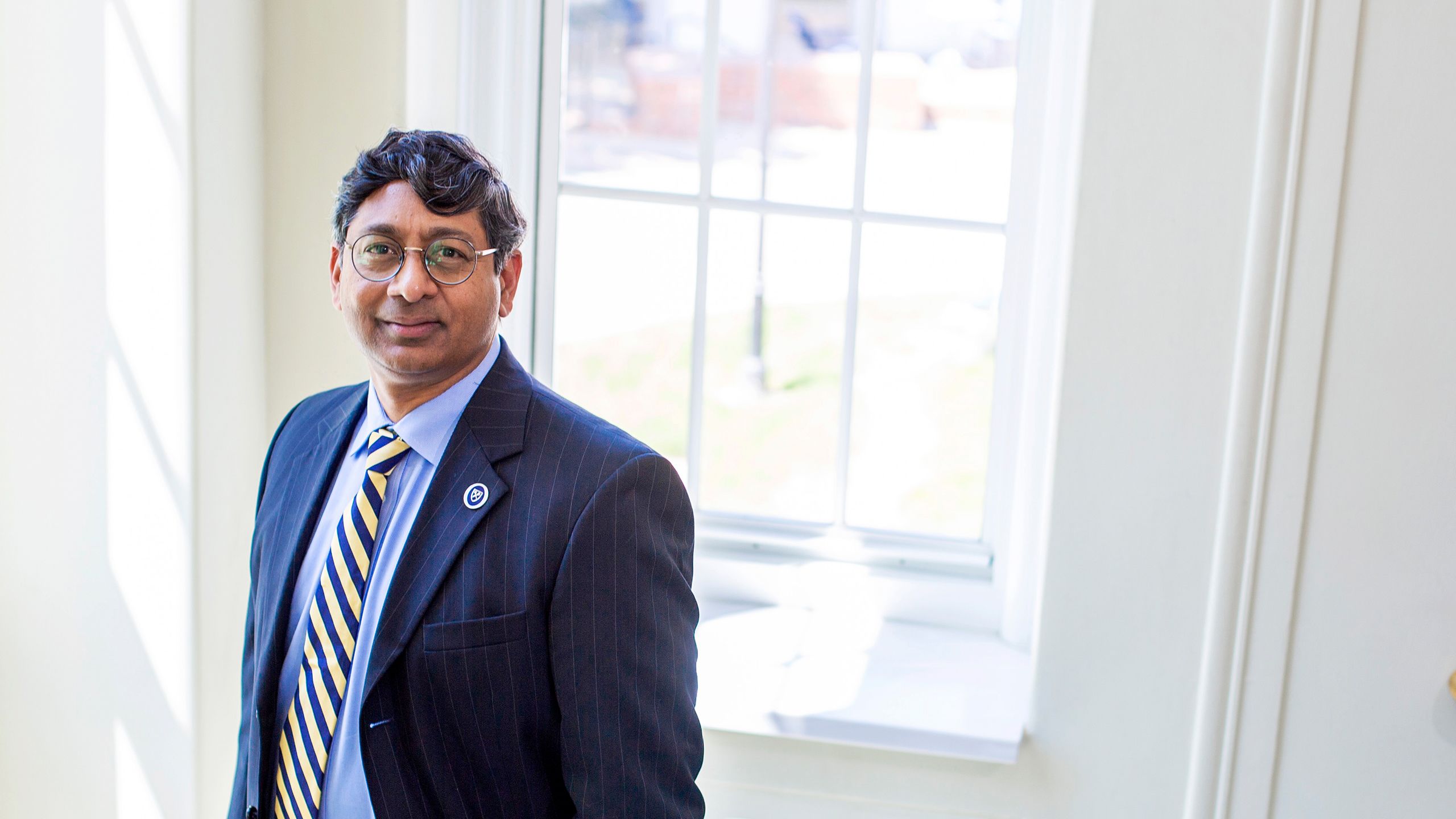
When Ravi Bellamkonda moves from Durham, N.C., to Atlanta this summer to become Emory’s next provost and executive vice president for academic affairs, he and his spouse Lalita Kaligotla—along with their children Ameya and Mihir—won’t be the only ones adjusting to a new neighborhood.
So will CJ, their three-year-old goldendoodle named after a character on the TV show “The West Wing.”
“I never grew up with dogs,” Bellamkonda says. “And I'll tell you, my life has been transformed.”
A bioengineer and neuroscientist by training, Bellamkonda uses biology to explain CJ’s effect on his life. While genotype refers to all possible characteristics in a given cell or person, phenotype refers to a particular or distinct manifestation of a subset of those traits.
Spending time with CJ has “enhanced” the phenotypical expression of the caring, empathetic person the Emory community once knew as its chair of biomedical engineering and soon will know again—in a new way—as provost.
“That’s a long and nerdy way to say that I like the Ravi that CJ brings out,” Bellamkonda says. “She allows me to practice the vulnerability of feeling and showing love. She gives me connectedness without words being used or screens being present. And I’m grateful to her.”
Connection and empathy are important qualities for any leader, especially those entering a new role.
CREATIVE COLLISIONS AMONG DISCIPLINES
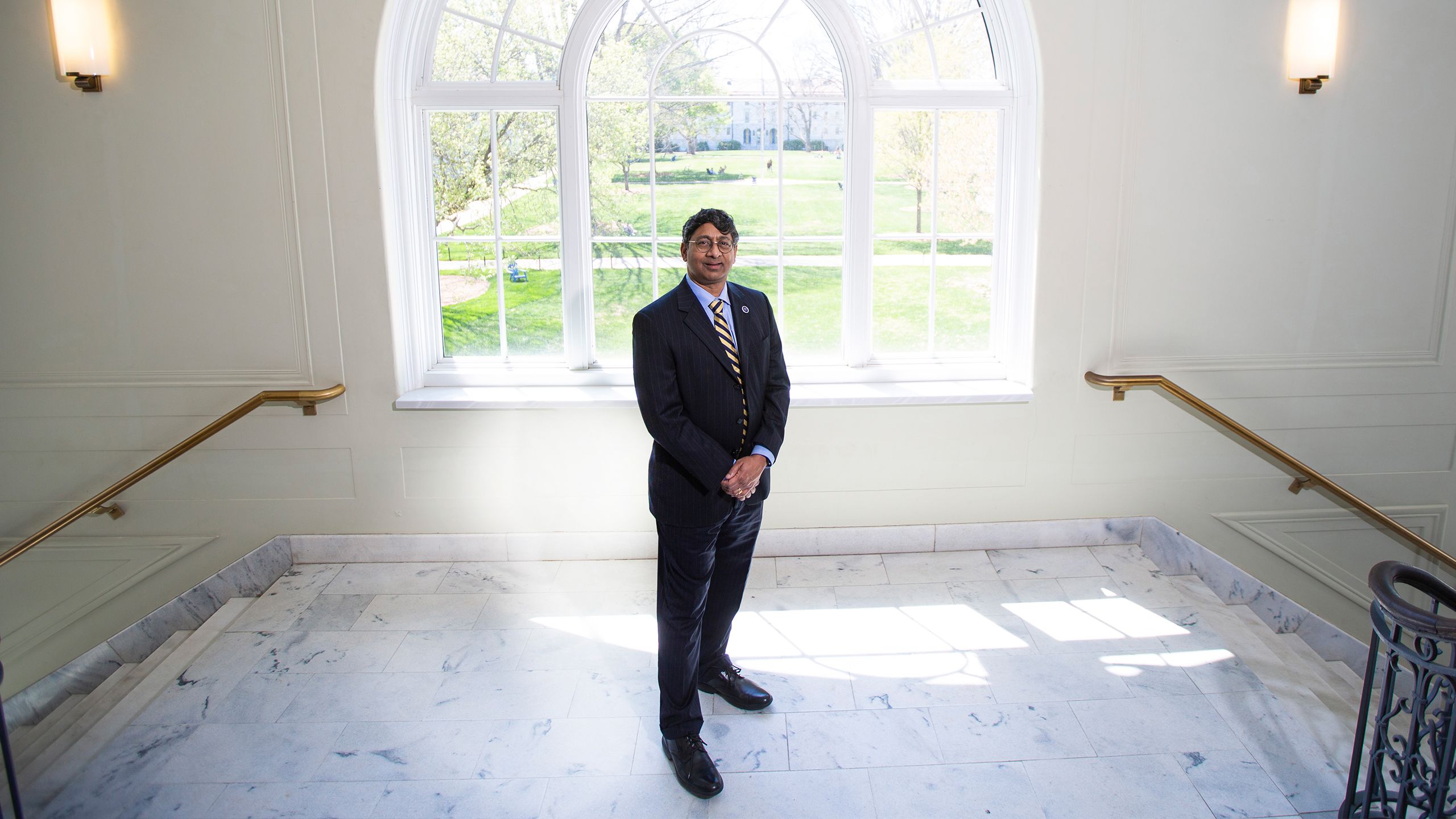
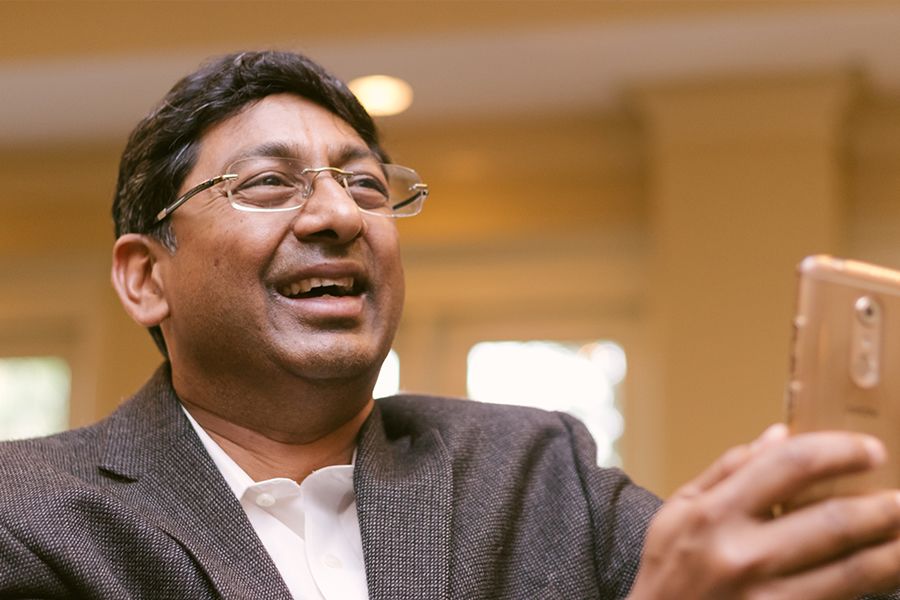
Ravi Bellamkonda has long been beloved by his students. Though he's won many accolades across his professional career, he considers being named "Best Professor" by the undergraduate student body at Georgia Tech his proudest achievement.
Ravi Bellamkonda has long been beloved by his students. Though he's won many accolades across his professional career, he considers being named "Best Professor" by the undergraduate student body at Georgia Tech his proudest achievement.
“If you look at the challenges that we face,” Bellamkonda says, “they’re really about us as human beings. How are we organized? What does it mean to be civilized? When we say ‘us’ and ‘them,’ what are the limits and boundaries of ‘us,’ and where does ‘them’ begin? These are humanistic questions.”
As he rejoins Emory on July 1, Bellamkonda will be returning to a university and a city changed by recent events. He arrives in Atlanta during a remarkable moment in higher education, one shaped by the COVID-19 pandemic, political divisions across the United States, and renewed imperatives for racial and social justice.
He plans to listen, learn, and invite new voices to the table. He understands that while his own research revolves around biomedical science, the great questions being asked in our world today are not primarily technological.
“If you look at the challenges that we face,” he says, “they’re really about us as human beings. How are we organized? What does it mean to be civilized? When we say ‘us’ and ‘them,’ what are the limits and boundaries of ‘us,’ and where does ‘them’ begin? These are humanistic questions.”
Confronting these questions requires a multidisciplinary approach grounded in our values and in distinct habits of thought and mind.
Bellamkonda describes the liberal arts as a dynamic conversation between the quantitative and the qualitative, with the arts, humanities, and sciences in a constantly evolving conversation. He envisions “creative collisions” among disciplines taking place across campus as part of the Emory experience. He believes that while great interdisciplinary universities have low barriers for such collisions, they also must have great disciplinary strengths and be home to a diverse community of students, faculty, staff, and alumni.
This is a vision Bellamkonda shares with Emory President Gregory L. Fenves, and this was a part of his inspiration to rejoin Emory.
Recalling his own student days, he says: “University life was an amazing experience of growth—hearing and seeing so many different people, making new Pakistani friends after having grown up in India. I had grown up being taught how different we were.”
“But I soon found out we had so much in common. We liked the same music. We liked the same kinds of food. But until you experience that moment, that encounter, it’s hard to discover on your own. This is the power of great universities—they are the conveners of a diverse community, joined together by intellectual curiosity, a thirst for knowledge, and a commitment to personal and societal well-being.”
Bellamkonda cites Gandhi and the Buddha as role models for his personal practice, which strives for universal compassion. In every encounter, he seeks to find common ground while respecting the fact that human beings do not share the same experiences or histories.
“We are all connected in some fundamental way,” he says.
FROM GRAD STUDENT TO COLLEGE DEAN
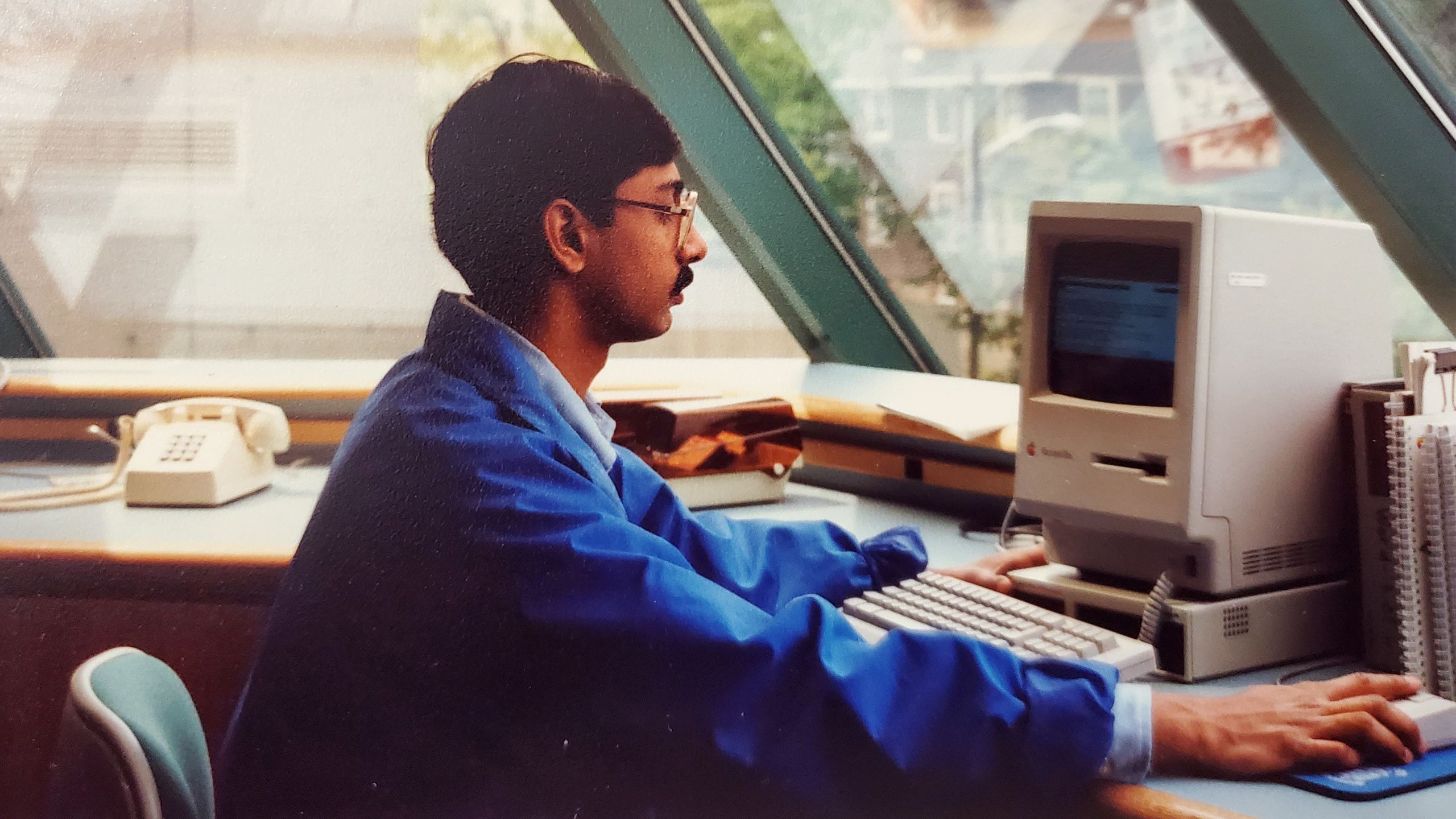
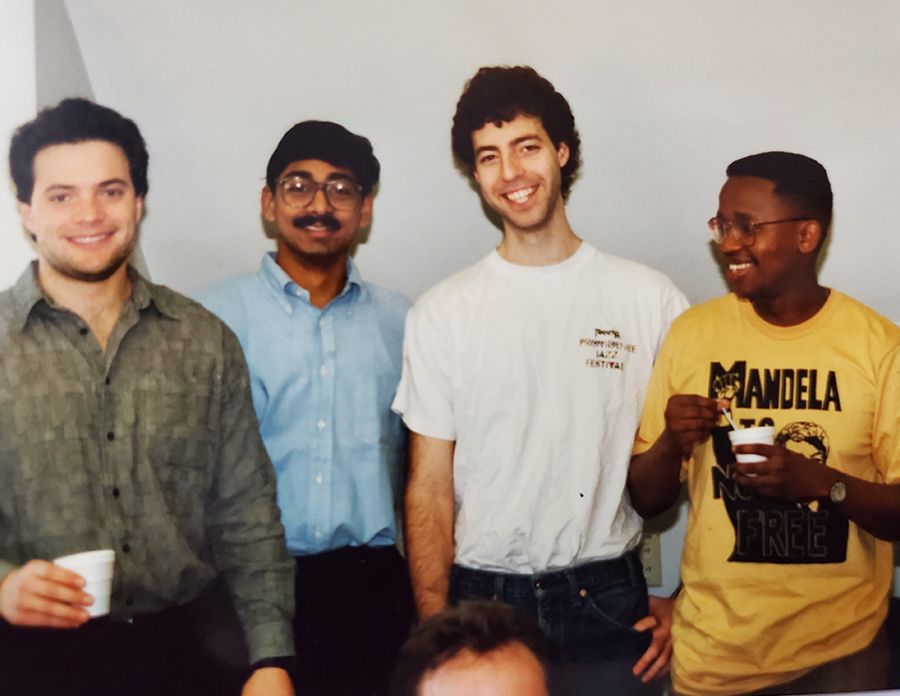
Ravi Bellamkonda (second from left) with fellow graduate students at Brown University, where he earned his PhD in medical science and biomaterials.
Ravi Bellamkonda (second from left) with fellow graduate students at Brown University, where he earned his PhD in medical science and biomaterials.
“Ravi is the ideal academic leader for our university—he understands Emory on a profound level, and that, combined with his drive, ambition, and creativity, will help us build a bold and vibrant future,” says Emory President Gregory L. Fenves.
Bellamkonda is no stranger to starting over. When he moved from India to the United States in 1989 to begin a PhD program at Brown University, he didn’t know a soul. He couldn’t have found Brown on a map if you’d asked him. “It could have been in Texas, for all I knew,” he says.
He had $800 in cash to survive on until he received his first fellowship stipend. He scrambled to learn American customs, including restaurant etiquette. How to order sandwiches from a deli initially left him baffled. “All those toppings and bread choices,” he recalls now, laughing.
But he soon found his footing, drawn into new friendships, new ideas, and thriving connections with scholars from around the world. He published his first paper, co-written with a colleague, and mailed a copy to his parents back home.
“I cannot tell you the excitement of that first paper,” he says, “seeing your name as an author and the data you have generated. There is something incredible about that moment.”
Bellamkonda wrote his dissertation on nerve regeneration and went on to become a Markey Fellow at MIT’s Department of Brain and Cognitive Sciences.
In 1995, he joined the faculty at Case Western Reserve University, and in 2003, moved to Atlanta for a joint faculty appointment between Georgia Tech and the Emory School of Medicine. From 2010 to 2013 he served as the associate vice president for research at Georgia Tech, then served as chair of the Emory-Georgia Tech Wallace H. Coulter Department of Biomedical Engineering from 2013 to 2016.
For the past five years, he has been the dean of Duke University’s Pratt School of Engineering. Bellamkonda is a prolific researcher, with his lab exploring novel treatments for adult and pediatric brain tumors. He’s as excited about his recent research paper on moving brain tumors with electric fields as he is about his first paper at Brown. He has won numerous national awards and authored more than 130 peer-reviewed articles and holds 10 patents.
Of all these accolades, he is most proud of being recognized as “Best Professor” by the undergraduate student body at Georgia Tech.
Emory President Gregory L. Fenves says, “Ravi is the ideal academic leader for our university—he understands Emory on a profound level, and that, combined with his drive, ambition, and creativity, will help us build a bold and vibrant future.”
FACILITATE, NURTURE, CONVENE, NUDGE
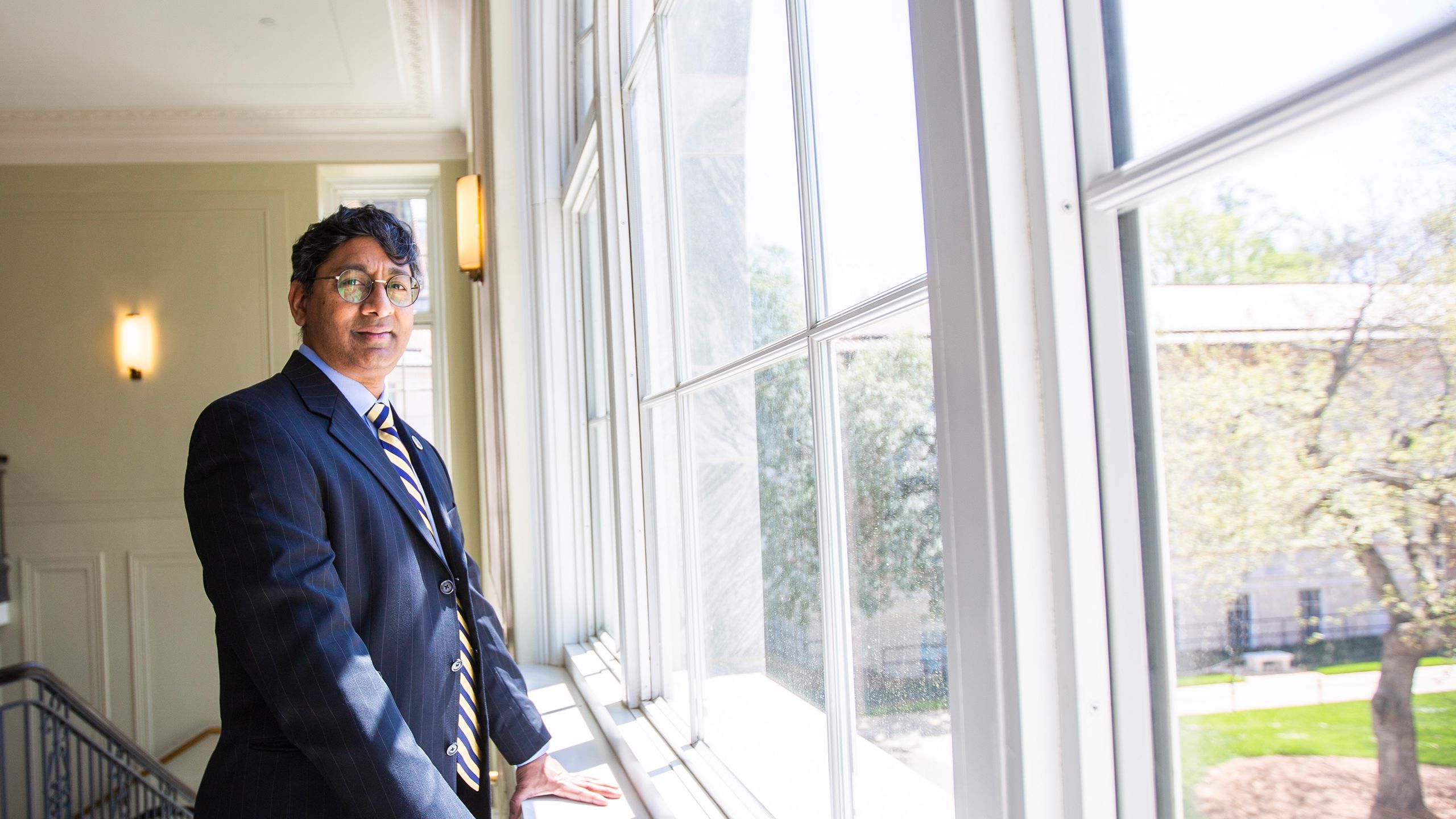
As he steps into the provost role, Bellamkonda brings the same passion for new ideas and connections that he first experienced as a PhD student studying the application of biomaterials to the human nervous system. He sees the task of the provost as creating opportunities for students to have a world-class learning experience and for faculty to conduct extraordinary scholarship, teaching, and discovery.
“My hope,” Bellamkonda says, “is to facilitate, nurture, convene, and nudge, to the extent that the role allows me, so that we as a university can do our best to actively shape the world we want to live in, and we want our children to inherit. This is the wise heart seeks knowledge, but it’s also acting on the power of knowledge. It’s using that knowledge to make the world better.”
He adds: “I view the role of a university as an inherently noble endeavor—our mission for discovery, of learning and shaping the world inside us as humans as well as the outer world that we inhabit as a people.”
This knowledge can take many forms, he notes. From creating theatrical productions to developing new vaccines. From studying ancient philosophy to designing start-ups that support the local economy.
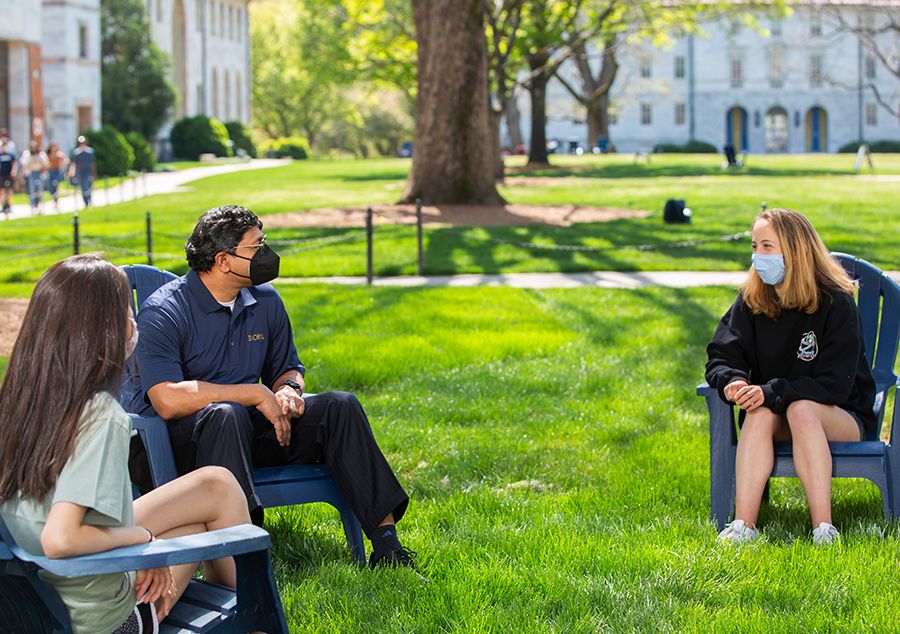
Bellamkonda enjoys an opportunity to catch up with Emory students before he officially joins as provost on July 1.
“Ravi believes deeply in research that crosses traditional boundaries,” says Jonathan Lewin, executive vice president for health affairs and CEO of Emory Healthcare. “His philosophy is extremely well-aligned with the strategy and culture of the Woodruff Health Sciences Center, and we are thrilled that he will once again contribute to Emory as Provost.”
Expect to see Bellamkonda encouraging students’ entrepreneurial spirit in his new role. At Georgia Tech, he helped launch CREATE-X, a start-up program for undergraduates. At Duke, he led a revisioning of the undergraduate curriculum to include experiential education, ethics, teamwork, and problem-solving around real-world needs.
His colleagues at Duke praise his ability to help students and faculty think—and live—outside the box.
“Dean Ravi’s open and approachable leadership style empowers students to become pioneers, but not just academically,” says Sydney Hunt, a Duke undergraduate student. “He leaves behind a legacy that supports and encourages students to challenge the norms, be okay with the unknown, and grow from every experience.”
Duke faculty member Henry Gavin calls Bellamkonda “a visionary leader with transformational aspirations,” adding that his work on curriculum redesign has become a signature feature of Duke’s educational approach.
Others at the Pratt School of Engineering appreciated how accessible Bellamkonda was to all when he was dean.
“From the first day he spoke to our faculty and staff, you could quickly tell that he valued everyone equally,” says Duke staff member August Burns. “He shared his experience as a young college student away from home and still remembers fondly how a few staff members treated him during those years, making him feel at home. You can see that impact in his leadership, in the way he works to bring equality and inspiration to students, faculty, and staff.”
Michael Elliott, dean of Emory College of Arts and Sciences, looks forward to Bellamkonda’s arrival and to his interactions with Emory students. “Ravi has extensive experience in promoting student success and encouraging interdisciplinary research,” Elliott says. “I’m excited to work with an academic leader of his caliber to advance Emory’s mission.”

Bellamkonda enjoys an opportunity to catch up with Emory students before he officially joins as provost on July 1.
Bellamkonda enjoys an opportunity to catch up with Emory students before he officially joins as provost on July 1.
HELPING STUDENTS AND FACULTY FLOURISH
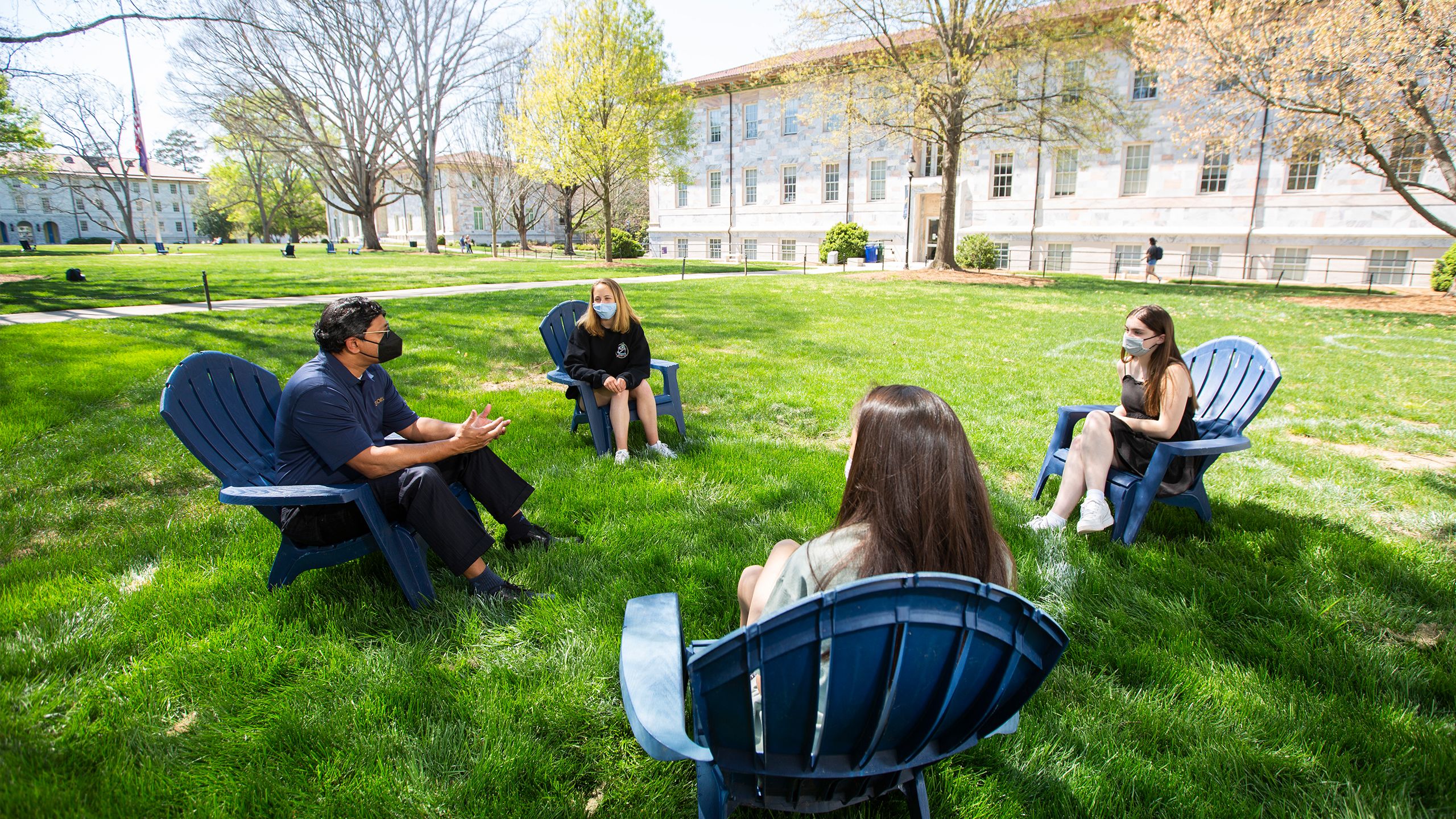
Bellamkonda will have his hands full with all the personal transitions that come with a major move. He and his family still need to decide where to live in Atlanta. His daughter Ameya starts her first year at Wake Forest University in the fall. His son Mihir is poised to graduate from Duke later this year.
His wife and partner Lalita Kaligotla, currently a faculty member and associate director of the Hart Leadership Program in the Sanford School of Public Policy at Duke, will explore new professional opportunities of her own.
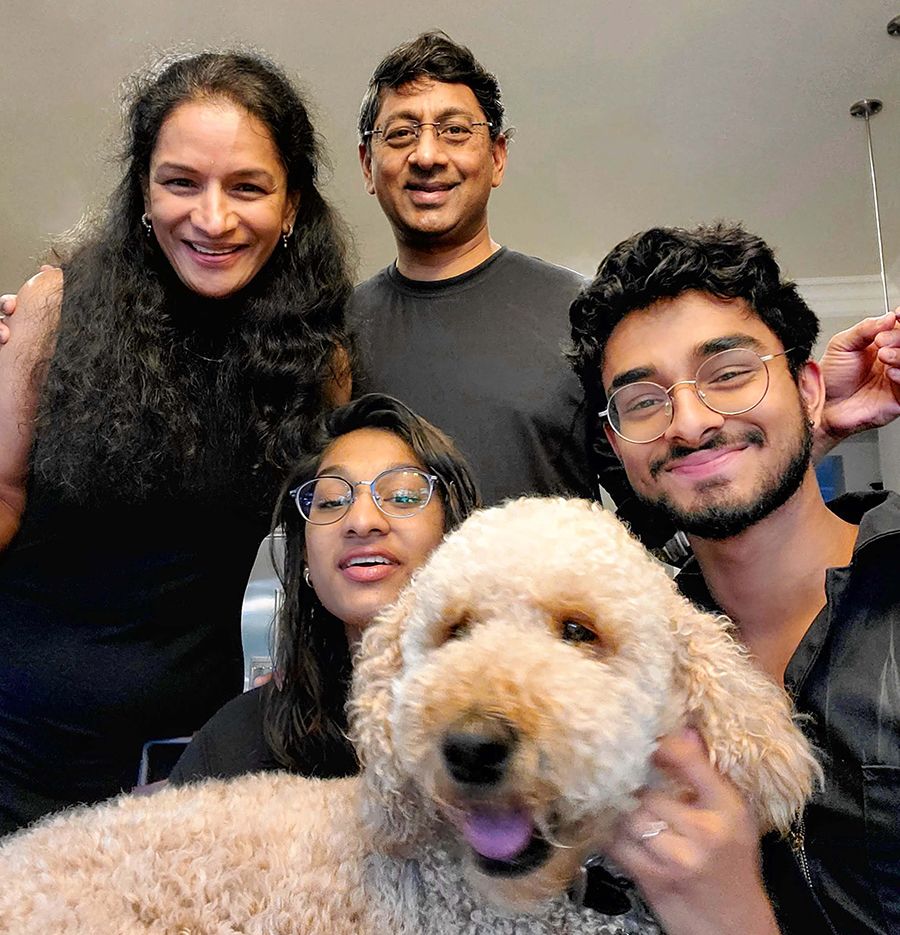
Ravi Bellamkonda (center, standing) with his wife Lalita Kaligotla, daughter Ameya, son Mihir, and the family's goldendoodle CJ.
And his dog CJ will adjust to all the sights, sounds, and smells of their new home—hopefully making tons of new friends at Emory as she accompanies the provost on walks around the Quad.
Bellamkonda understands that Emory has seen much change in recent years. He is determined to help the Emory community continue to excel and thrive in the weeks and months to come. He plans to spend time building relationships, connecting, and earning trust.
“I think the job of the provost is to ask the right questions, challenging the university community to recognize that the aspirational Emory is worthy of pursuit and attainable through our collective ambition and action,” Bellamkonda says. “And we do this by helping our students, staff, alumni, and faculty flourish—creating the circumstances to enable that flourishing to happen through the pursuit of meaningful endeavors.”
Story by Stacia Pelletier. Video by Steve Nowland. Photos by Kay Hinton. Additional photos provided by Ravi Bellamkonda.

Ravi Bellamkonda (center, standing) with his wife Lalita Kaligotla, daughter Ameya, son Mihir, and the family's goldendoodle CJ.
Ravi Bellamkonda (center, standing) with his wife Lalita Kaligotla, daughter Ameya, son Mihir, and the family's goldendoodle CJ.

